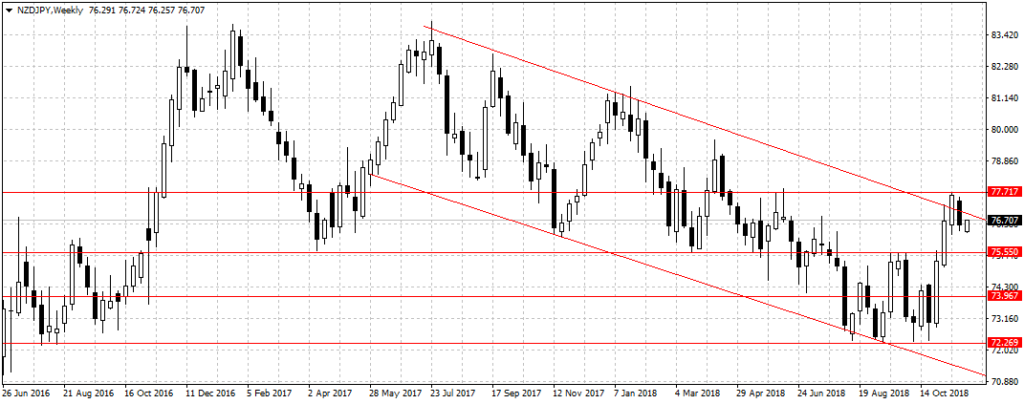- New Zealand Retail Sales Unchanged in Q3
New Zealand’s retail sales were unchanged during the third quarter, data from Statistics agency showed on Monday.
Seasonally adjusted retail sales, excluding fuel prices, rose 2.7 per cent year-on-year but was flat during the quarter. Missing the 1 per cent projected by economists.
The total value of sales climbed by 0.6 per cent or $153 million in the quarter when compared to June 2018 quarter.
The report showed the largest price increase was recorded in fuel, price was up 7 per cent or $150 million more than the second quarter. The number is in accordance with the data from Auckland fuel tax and record fuel prices.
Sales of food and beverage fell 2.4 per cent or $71 million in value in the quarter. The largest fall since the report began.
The New Zealand dollar rose against the Japanese Yen to 76.70. Still, within the bearish region and will likely continue last week bearish move below 75.55 support levels for two reasons, the EU approved Brexit draft deal will increase the attractiveness of haven currencies as investors await UK parliamentary vote on December 12. Two, the uncertainty surrounding US-China trade deal is hurting New Zealand dollar outlook and may further weigh on it if no concrete agreement is reached in Argentina.
 Therefore, I do not see the pair sustaining a move above the 76.93 price level that doubled as the descending trendline just yet.
Therefore, I do not see the pair sustaining a move above the 76.93 price level that doubled as the descending trendline just yet.